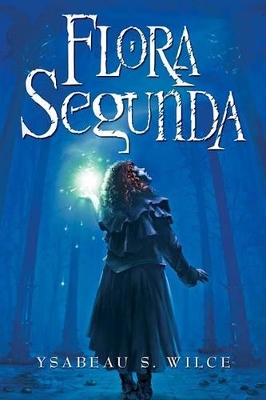Reviewed by nannah on
Book content warnings:
ableism!
racism
Flora's world is a parallel universe set in what's probably California, USA (Califa). World building relies heavily on the author's past training as a military historian, and although that's very admirable, I'm still a bit side-eying the decision to fill a fictional world, where an author has total power over, with cultures based on war. Especially given what's going on in our world today.
Anyway, Flora Segunda is the daughter of the famous General, basically one of the most powerful people in Califa--second only to the Warlord himself. She's expected to train at the Barracks when she's older (replacing college in this universe, I believe), though what she really wants to do is become a Ranger and study the outlawed Magick like her idol, Nini Mo.
But she also has to deal with the powerful and banished Butler of her house, who begs to be restored and, to do it, may have to connect himself to Flora in a way she could come to regret later.
The plot line becomes a little busy, and halfway through, I wasn't quite sure what was the overall plot. Flora's situation with her magickal Butler? Or what was happening with the Rangers? When the story went off to explore one of these plots, it would completely forget about the other one. It felt like two ministories smashed together.
But okay, to what made me dislike the novel. Flora's father, Poppy, is a man portrayed as having mental illness. Specifically, PTSD and perhaps others as well. He was a prisoner of war, he lost people he loved, etc. He experiences mood swings, periods where he is not himself, doesn't remember who Flora is, etc. And yet Flora's opinion of him is unchangingly: "people go through tough stuff all the time; why is Poppy special?" As an author trained as a military historian, I would expect Ysabeau S. Wilce to be more sympathetic to people with PTSD.
Not only does Flora think this about her father, she also hates "taking care of him so much" that she thinks he's an unbearable burden (thanks for reminding me also--a person with mental and physical disabilities--that I'm a burden to my family and loved ones). If this were only her thoughts at the beginning of the book, and if they were later challenged and corrected, it wouldn't be so bad. But this never happens. Instead, she has a nice "talk" with him, and it's his responsibility to correct his behavior, and basically "overcome his mental illness" to take care of his family better. Bullshit. Pure and utter bullshit.
There's also the very racist world building here. Califa seems mostly populated by white latin@s. Or at least, the main characters are all white latin@s. Is this in itself a problem? No, of course not. But the problem lies when the "villains" of the story are all based on Aztec culture, called the Huitzils (the "Huitzil Overlords"). This culture is filled with the most absolute bloodthirsty and vile people. Flora even fears they've flavored her hot chocolate with blood. It's just . . . tiring. Sure, the Aztecs had many rituals long ago that were far different from our own, but to like . . . present their culture in the same time/universe our own in a similar universe and write only about their savagery and none of their wisdom . . . seems incredibly racist.
So overall, what could've been a great adventure was spoiled by some nasty ableism and racism. It could've been easily avoided, so I don't know what possessed this author to add it in.
Reading updates
- Started reading
- 21 May, 2017: Finished reading
- 21 May, 2017: Reviewed
